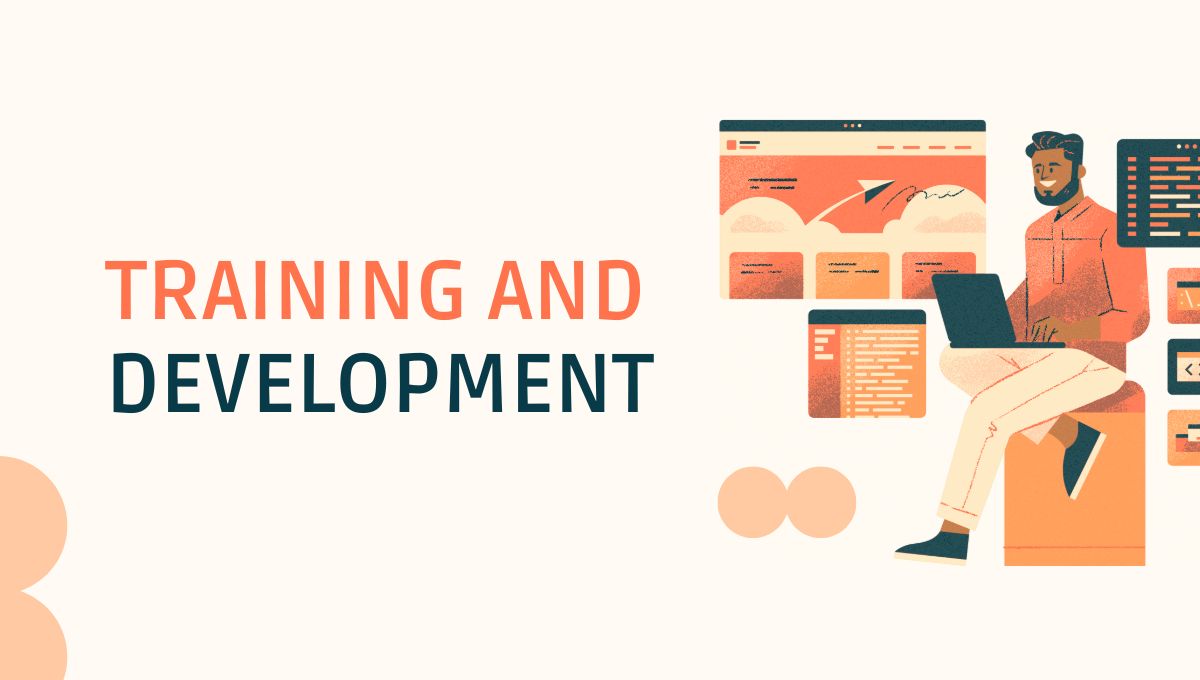Table of Contents
Have you ever considered how organisations ensure their people are ready for what the future holds?
The answer often lies in a well-rounded training and development strategy. Training and development are not merely optional extras but are essential to any successful organisation’s DNA, promoting growth, adaptability, and resilience.
When we think of the key benefits – from skills enhancement to improved workplace productivity – the impact is clear. But let’s dive deeper to understand why training and development should sit at the core of any thriving workplace.
The True Power of Employee Development
Employee development does more than simply equip staff with skills. It encourages innovation at all times. Just think of a company that is investing in its employees; that makes an organisation an environment in which people are inducive and willing to work.
It is not only a concept of correcting our performance in the workplace – it is the development of an organisational culture for every employee, from the junior employee to the executive.
Here are some compelling insights into why prioritising employee development leads to organisational success:
| Benefit | Outcome |
| Increased Productivity | Employees become more efficient in their roles. |
| Higher Retention Rates | Development boosts morale and loyalty, reducing turnover. |
| Enhanced Skills | Keeps skills up-to-date, meeting modern workplace demands. |
| Adaptability to Change | Training helps teams stay agile and adaptable. |
By fostering skills enhancement in their people, organisations don’t just enhance individual performance; they establish a competitive advantage.
Why Invest in Workplace Training?
Training and development improve the effectiveness of organisations and the individuals and teams that make up their workforce.
This process consists of three main components: training, education, and development.
The specific technique and type of development provided can differ depending on individuals’ roles within the organisation, catering to their specific abilities and responsibilities.
Imagine a manager noticing that his team’s productivity has plateaued. Rather than pushing them harder, he provides tailored training that energises his employees and addresses their specific needs.
That’s the power of intentional workplace training. It goes beyond teaching hard skills – it prepares employees for the complexities of their roles, improving confidence and satisfaction.
Why are training and development important for organisations?
Here are a few more reasons to make training a priority:
- Keeps Organisations Competitive: In a world where technology and business practices are inconsistent and changing daily, workplace training helps employees prepare and get ready.
- Promotes Career Growth: Training and developing employees makes them feel important, and they tend to be loyal to organisations that offer their employees an opportunity to grow.
- Improves Decision-Making: Well-trained employees contribute to the business more strategically, and courses like an HR analytics course provide the insights needed to make data-driven decisions.
The Structured Path to Skill Enhancement: The Training and Development Cycle
The training and development process enhances organisational performance and employee skills.
The design phase crafts a strategy, selecting content and setting measurable outcomes. The implementation stage brings the plan to life through workshops, seminars, or e-learning, encouraging hands-on practice.
Finally, evaluation measures effectiveness and gathers feedback, informing continuous improvement to refine and update the process, ensuring ongoing growth and adaptation. This cycle empowers organisations to stay competitive and employees to continually enhance their skills.
Needs Assessment
- Identify organisational goals
- Analyse skill gaps
- Determine training objectives
Design
- Develop training strategy
- Choose content and format
- Set performance metrics
Implementation
- Deliver training sessions
- Use workshops, seminars, e-learning, etc.
- Encourage hands-on practice
Evaluation
- Measure outcomes against objectives
- Collect feedback from participants
- Analyse ROI and effectiveness
Continuous Improvement
- Adjust content based on feedback
- Update methods and materials
- Repeat cycle for ongoing development
HR Analytics: A Modern Approach to Employee Development
The role of HR in employee training and development adds depth and precision. For example, an HR analytics course equips leaders to measure the actual impact of training, identifying areas that offer the best return on investment.
Imagine pinpointing precisely which training initiatives lead to reduced turnover or increased productivity – that’s a game-changer for any HR team.
An effective analytics approach allows organisations to answer questions like:
- Which skills contribute most to achieving our strategic goals?
- How do specific development programmes influence employee retention?
With HR analytics, training no longer remains a guessing game but evolves into a powerful, measurable strategy that boosts employee development.
Training programmes for employee retention aren’t just strategies; they’re commitments to fostering a workforce that thrives.
Build a Learning-Focused Future: Lead the Future of HR with Imarticus Learning and CEC, IIT Roorkee
With the rapid evolution of industries, it’s essential to look ahead. By investing in organisational development and training programmes, your company can remain agile, innovative, and resilient, positioning itself as a leader in an ever-changing market.
Imarticus Learning, in collaboration with IIT Roorkee, presents the Professional Certificate in Human Resource Management and Analytics CEC, IIT Roorkee, designed to equip participants with the knowledge and skills required to excel in managing human resources in today’s dynamic business environment.
The course covers a broad spectrum of essential topics, including job analysis and design, recruitment strategies, employee selection and retention, performance management, training and development, compensation and benefits, skill and competency enhancement, diversity management, organisational culture building, and employee engagement.
The Professional Certificate in Human Resource Management and Analytics CEC, IIT Roorkee, offers an immersive learning experience with a focus on practical, hands-on training. Participants gain access to 3+ trending tools, 8+ case studies, and real-world projects that deliver invaluable practical insights and foster the skills needed to thrive in the field.
Empower Your HR Career—Enrol Now with Imarticus Learning!

